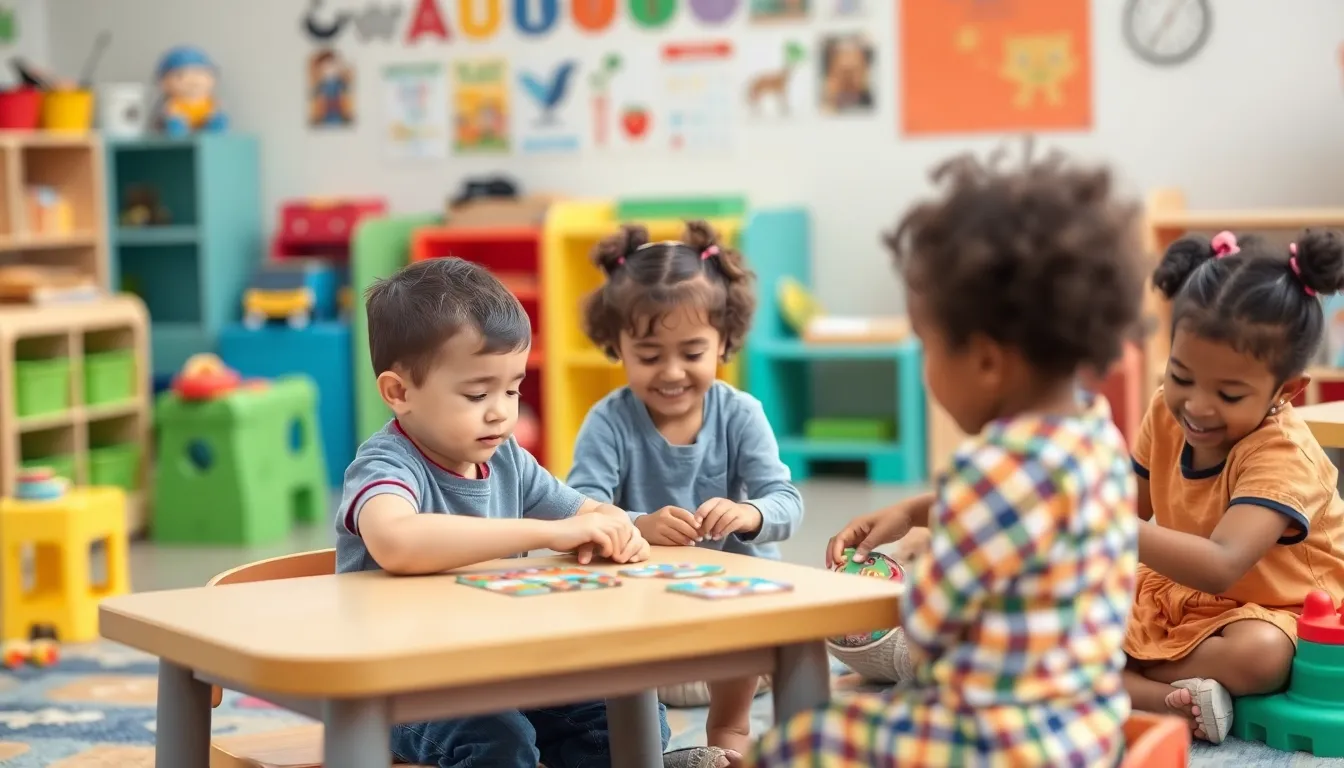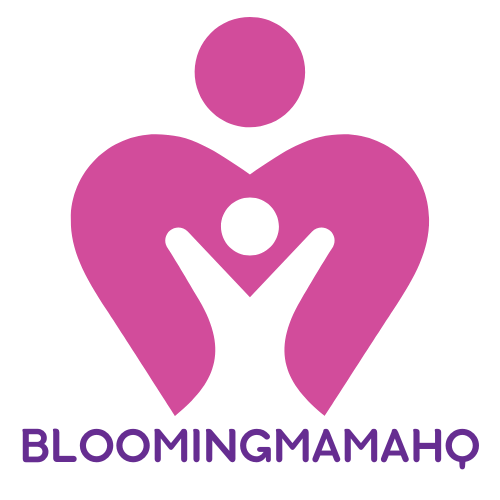In a world where toddlers seem to have boundless energy, finding ways to channel that enthusiasm into learning can feel like a Herculean task. Enter preschool learning games—those magical little activities that make education feel like playtime. Who knew that counting blocks or singing the alphabet could keep kids entertained while sneaking in some serious brain-building?
Table of Contents
ToggleOverview Of Preschool Learning Games
Preschool learning games serve as vital tools for early childhood education. These games engage young children in activities that are both fun and educational. Children can learn essential skills while interacting with their peers, fostering social development.
Incorporating music and movement enhances engagement, making components like singing the alphabet and counting games particularly effective. Simple tasks encourage active participation, allowing children to learn at their own pace. Various learning games adapt well to different environments, whether at home or in a classroom setting.
Foundational skills such as basic math, language, and problem-solving develop naturally through play. For instance, sorting toys by color or shape teaches categorization, while puzzles promote critical thinking. These activities build confidence as children accomplish tasks and receive positive reinforcement from caregivers and educators.
Technology also plays a role in modern preschool learning games. Educational apps provide interactive experiences that can supplement traditional play. Tablets and smartphones offer resources like alphabet recognition and simple math games, appealing to a tech-savvy generation.
Collaboration between educators and parents enhances the effectiveness of preschool learning games. Providing resources and suggestions for at-home activities increases the learning opportunities outside of formal education settings. Overall, embracing these games supports holistic development in early childhood.
Benefits Of Preschool Learning Games


Preschool learning games provide significant advantages for children’s early development. Engaging in these games nurtures various skills critical for lifelong success.
Cognitive Development
Children improve cognitive skills through play-based learning activities. Games that involve counting, sorting, or matching promote logical thinking. Engaging in puzzles enhances problem-solving abilities. Immersive experiences foster language acquisition and comprehension. Activities that require following directions boost attention spans. Various educational apps further enrich cognitive growth by providing interactive content. Children can explore concepts like colors and shapes while having fun.
Social Skills Enhancement
Social skills thrive in collaborative play environments. Children learn to share and take turns when engaging in group games. Interaction with peers fosters communication skills that are essential in life. Engaging in pretend play supports creativity and empathy. Cooperation during games encourages teamwork, teaching children to work together towards common goals. Forming friendships during these activities further enhances emotional intelligence. Participation in preschool learning games creates connections that nurture positive social relationships.
Types Of Preschool Learning Games
Preschool learning games come in various types, each designed to enhance children’s skills in unique ways.
Educational Board Games
Educational board games play a significant role in fostering cognitive and social skills. These games often involve counting, matching, and strategic thinking. Players engage with colorful boards and vibrant pieces, captivating their attention. They encourage interaction among peers, promoting teamwork and communication. Classic games like “Candy Land” and “Chutes and Ladders” make learning enjoyable while reinforcing essential concepts. Parents and educators can easily incorporate these games into playtime, making learning an integral part of everyday activities.
Interactive Apps And Online Games
Interactive apps and online games provide a modern approach to preschool learning. These digital tools offer a wide array of engaging content tailored for young learners. Apps often include interactive storytelling, puzzle-solving, and educational challenges. Children can learn at their own pace with immediate feedback that keeps them motivated. Popular platforms like “ABCmouse” and “Endless Alphabet” combine entertainment with education. As technology evolves, these digital resources complement traditional learning methods effectively, enhancing skill development in an enjoyable format.
How To Choose The Right Preschool Learning Games
Selecting preschool learning games involves considering specific factors that enhance children’s engagement and development. Understanding age appropriateness and clear learning objectives supports effective choices.
Age Appropriateness
Age appropriateness ensures that games match children’s developmental stages. Toddlers benefit from games designed for their skills, such as simple matching or sorting tasks. Three to five-year-olds engage more with games that incorporate storytelling or basic problem-solving elements. Evaluating recommended age ranges on game packaging helps parents and educators select suitable options. Games that challenge kids without overwhelming them foster confidence and interest in learning. In addition, ensuring games remain fun promotes repeated play, solidifying the learning experience.
Learning Objectives
Identifying learning objectives is crucial in choosing preschool learning games. Games should target specific skills like counting, language development, or social interaction. Encouraging counting can involve sorting and matching games, while language development strengthens through storytelling and rhymes. Social skills enhance through collaborative play, where sharing and communication come into play. Evaluating how each game addresses these objectives helps maximize learning outcomes. Selecting games that align with educational goals supports children in gaining critical foundational skills while enjoying themselves.
Preschool learning games play a vital role in shaping a child’s early development. They seamlessly blend fun with education, allowing children to explore essential skills while engaging with peers. The combination of traditional board games and modern interactive apps ensures a diverse learning experience that caters to various learning styles.
By choosing age-appropriate games with clear educational objectives, parents and educators can significantly enhance children’s cognitive and social abilities. This approach not only nurtures foundational skills but also lays the groundwork for lifelong learning. Embracing these playful learning opportunities can foster a love for education that lasts well beyond the preschool years.



